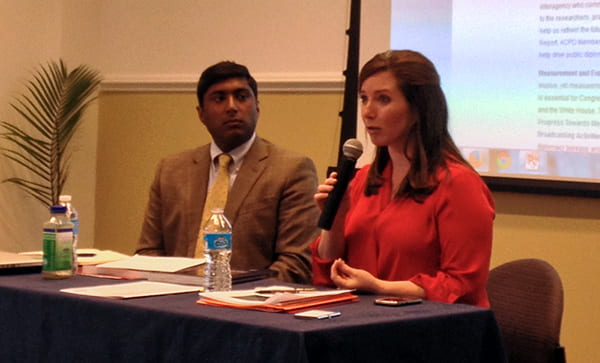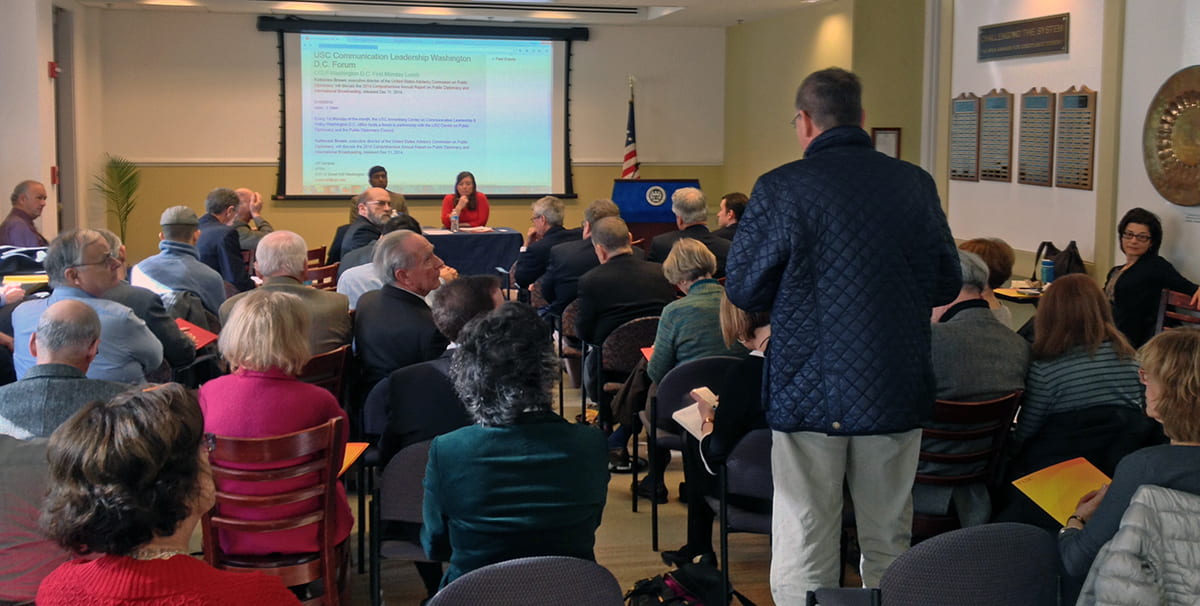WASHINGTON – Katherine Brown, Executive Director of the U.S. Public Diplomacy Advisory Commission, speaking at this week’s CCLP Communications Leadership Forum here, said she was contemplating expand its review of public diplomacy to include agencies beyond the State Department – notably the Department of Defense.

Katherine Brown, Executive Director of the U. S. Advisory Commission on Public Diplomacy, and Chris Hensman, Senior Advisor at the U.S. Advisory Commission on Public Diplomacy
Brown’s statement was in response to a question, the questioner noting that some agencies – especially the Pentagon – have far more resources than State. And the first sentence of the Commission’s web site reads, “Since 1948, the United States Advisory Commission on Public Diplomacy (ACPD) has been charged with appraising U.S. Government activities intended to understand, inform and influence foreign publics and to increase the understanding of, and support for, these same activities.” That would seem to indicate the Commission can review all public diplomacy government-wide.
Most of Brown’s remarks were devoted the Commission’s 2014 Comprehensive Annual Report on Public Diplomacy and International Broadcasting which was published on December 11.
The report’s recommendations include additional funding for research and evaluation. For example, she said, the Broadcasting Board of Governors should review analyses of U.S. international broadcasting to “expand evaluation to measure impact, not just reach [number of viewers and listeners].”

Brown said the report also called for strengthening “in-person relationship-building,” notably the Fulbright program. According to the report, funding the Fulbright program is slated to be reduced by $30 million in 2015, even though it is among the most valuable – if not the most valuable – U.S. exchange program.
The report also showed that the cost to U.S. taxpayers per person is less for a full-year Fulbright than for the four- to six-week exchange programs created in the past few years. Much of that is because foreign governments pay a large share of the costs of Fulbright participants.
Monday’s CCLP Washington Communication Leadership forum was part of a monthly series of lunch forums presented in partnership with the USC Center on Public Diplomacy and the Public Diplomacy Council.